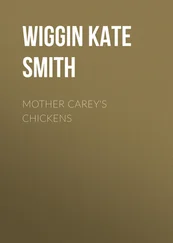Kate Wiggin - The Story of Waitstill Baxter
Здесь есть возможность читать онлайн «Kate Wiggin - The Story of Waitstill Baxter» — ознакомительный отрывок электронной книги совершенно бесплатно, а после прочтения отрывка купить полную версию. В некоторых случаях можно слушать аудио, скачать через торрент в формате fb2 и присутствует краткое содержание. Жанр: foreign_prose, literature_19, foreign_antique, на английском языке. Описание произведения, (предисловие) а так же отзывы посетителей доступны на портале библиотеки ЛибКат.
- Название:The Story of Waitstill Baxter
- Автор:
- Жанр:
- Год:неизвестен
- ISBN:нет данных
- Рейтинг книги:3 / 5. Голосов: 1
-
Избранное:Добавить в избранное
- Отзывы:
-
Ваша оценка:
- 60
- 1
- 2
- 3
- 4
- 5
The Story of Waitstill Baxter: краткое содержание, описание и аннотация
Предлагаем к чтению аннотацию, описание, краткое содержание или предисловие (зависит от того, что написал сам автор книги «The Story of Waitstill Baxter»). Если вы не нашли необходимую информацию о книге — напишите в комментариях, мы постараемся отыскать её.
The Story of Waitstill Baxter — читать онлайн ознакомительный отрывок
Ниже представлен текст книги, разбитый по страницам. Система сохранения места последней прочитанной страницы, позволяет с удобством читать онлайн бесплатно книгу «The Story of Waitstill Baxter», без необходимости каждый раз заново искать на чём Вы остановились. Поставьте закладку, и сможете в любой момент перейти на страницу, на которой закончили чтение.
Интервал:
Закладка:
The dear innocent had, indeed, no need of haste! Young Mr. Marquis de Lafayette Wilson, Mark for short, was not in the least a gay deceiver or ruthless breaker of hearts, and, so far as known, no scalps of village beauties were hung to his belt. He was a likable, light-weight young chap, as indolent and pleasure-loving as the strict customs of the community would permit; and a kiss, in his mind, most certainly never would lead to the altar, else he had already been many times a bridegroom. Miss Patience Baxter’s maiden meditations and uncertainties and perplexities, therefore, were decidedly premature. She was a natural-born, unconsciously artistic, highly expert, and finished coquette. She was all this at seventeen, and Mark at twenty-four was by no means a match for her in this field of effort, yet!—but sometimes, in getting her victim into the net, the coquette loses her balance and falls in herself. There wasn’t a bit of harm in Marquis de Lafayette, but he was extremely agile in keeping out of nets!
Waitstill was restless, too, that night, although she could not have told the reason. She opened her window at the back of the house and leaned out. The evening was mild with a soft wind blowing. She could hear the full brook dashing through the edge of the wood-lot, and even the “ker-chug” of an occasional bull-frog. There were great misty stars in the sky, but no moon.
There was no light in Aunt Abby Cole’s kitchen, but a faint glimmer shone through the windows of Uncle Bart’s joiner’s shop, showing that the old man was either having an hour of peaceful contemplation with no companion but his pipe, or that there might be a little group of privileged visitors, headed by Jed Morrill, busily discussing the affairs of the nation.
Waitstill felt troubled and anxious to-night; bruised by the little daily torments that lessened her courage but never wholly destroyed it. Any one who believed implicitly in heredity might have been puzzled, perhaps, to account for her. He might fantastically picture her as making herself out of her ancestors, using a free hand, picking and choosing what she liked best, with due care for the effect of combinations; selecting here and there and modifying, if advisable, a trait of Grandpa or Grandma Foxwell, of Great-Uncle or Great-Aunt Baxter; borrowing qualities lavishly from her own gently born and gently bred mother, and carefully avoiding her respected father’s Stock, except, perhaps, to take a dash of his pluck and an ounce of his persistence. Jed Morrill remarked of Deacon Baxter once: “When Old Foxy wants anything he’ll wait till hell freezes over afore he’ll give up.” Waitstill had her father’s firm chin, but there the likeness ended. The proud curve of her nostrils, the clear well-opened eye with its deep fringe of lashes, the earnest mouth, all these came from the mother who was little more than a dim memory.
Waitstill disdained any vague, dreary, colorless theory of life and its meaning. She had joined the church at fifteen, more or less because other girls did and the parson had persuaded her; but out of her hard life she had somehow framed a courageous philosophy that kept her erect and uncrushed, no matter how great her difficulties. She had no idea of bringing a poor, weak, draggled soul to her Maker at the last day, saying “Here is all I have managed to save out of what you gave me!” That would be something, she allowed, immeasurably something; but pitiful compared with what she might do if she could keep a brave, vigorous spirit and march to the last tribunal strengthened by battles, struggles, defeats, victories; by the defense of weaker human creatures, above all, warmed and vitalized by the pouring out and gathering in of love.
Patty slept sweetly on the other side of the partition, the contemplation of her twopenny triumphs bringing a smile to her childish lips: but even so a good heart was there (still perhaps in the process of making), a quick wit, ready sympathy, natural charm; plenty, indeed, for the stronger sister to cherish, protect, and hold precious, as she did, with all her mind and soul.
There had always been a passionate loyalty in Waitstill’s affection, wherever it had been bestowed. Uncle Bart delighted in telling an instance of it that occurred when she was a child of five. Maine had just separated amicably from her mother, Massachusetts, and become an independent state. It was in the middle of March, but there was no snow on the ground and the village boys had built a bonfire on a plot of land near Uncle Bart’s joiner’s shop. There was a large gathering in celebration of the historic event and Waitstill crept down the hill with her homemade rag doll in her arms. She stood on the outskirts of the crowd, a silent, absorbed little figure clad in a shabby woollen coat, with a blue knit hood framing her rosy face. Deborah, her beloved, her only doll, was tightly clasped in her arms, for Debby, like her parent, had few pleasures and must not be denied so great a one as this. Suddenly, one of the thoughtless young scamps in the group, wishing to create a new sensation and add to the general excitement, caught the doll from the child’s arms, and running forward with a loud war-whoop, flung it into the flames. Waitstill did not lose an instant. She gave a scream Of anguish, and without giving any warning of her intentions, probably without realizing them herself, she dashed through the little crowd into the bonfire and snatched her cherished offspring from the burning pile. The whole thing was over in the twinkling of an eye, for Uncle Bart was as quick as the child and dragged her out of the imminent danger with no worse harm done than a good scorching.
He led the little creature up the hill to explain matters and protect her from a scolding. She still held the doll against her heaving breast, saying, between her sobs: “I couldn’t let my Debby burn up! I couldn’t, Uncle Bart; she’s got nobody but me! Is my dress scorched so much I can’t wear it? You’ll tell father how it was, Uncle Bart, won’t you?”
Debby bore the marks of her adventure longer than her owner, for she had been longer in the fire, but, stained and defaced as she was, she was never replaced, and remained the only doll of Waitstill’s childhood. At this very moment she lay softly and safely in a bureau drawer ready to be lifted out, sometime, Waitstill fancied, and shown tenderly to Patty’s children. Of her own possible children she never thought. There was but one man in the world who could ever be the father of them and she was separated from him by every obstacle that could divide two human beings.
SUMMER
VIII. THE JOINER’S SHOP
VILLAGE “Aunts” and “Uncles” were elected to that relationship by the common consent of the community; their fitness being established by great age, by decided individuality or eccentricity of character, by uncommon lovableness, or by the possession of an abundant wit and humor. There was no formality about the thing; certain women were always called “Aunt Sukie,” or “Aunt Hitty,” or what not, while certain men were distinguished as “Uncle Rish,” or “Uncle Pel,” without previous arrangement, or the consent of the high contracting parties.
Such a couple were Cephas Cole’s father and mother, Aunt Abby and Uncle Bart. Bartholomew Cole’s trade was that of a joiner; as for Aunt Abby’s, it can only be said that she made all trades her own by sovereign right of investigation, and what she did not know about her neighbor’s occupations was unlikely to be discovered on this side of Jordan. One of the villagers declared that Aunt Abby and her neighbor, Mrs. Abel Day, had argued for an hour before they could make a bargain about the method of disseminating a certain important piece of news, theirs by exclusive right of discovery and prior possession. Mrs. Day offered to give Mrs. Cole the privilege of Saco Hill and Aunt Betty-Jack’s, she herself to take Guide-Board and Town-House Hills. Aunt Abby quickly proved the injustice of this decision, saying that there were twice as many families living in Mrs. Day’s chosen territory as there were in that allotted to her, so the river road to Milliken’s Mills was grudgingly awarded to Aunt Abby by way of compromise, and the ladies started on what was a tour of mercy in those days, the furnishing of a subject of discussion for long, quiet evenings.
Читать дальшеИнтервал:
Закладка:
Похожие книги на «The Story of Waitstill Baxter»
Представляем Вашему вниманию похожие книги на «The Story of Waitstill Baxter» списком для выбора. Мы отобрали схожую по названию и смыслу литературу в надежде предоставить читателям больше вариантов отыскать новые, интересные, ещё непрочитанные произведения.
Обсуждение, отзывы о книге «The Story of Waitstill Baxter» и просто собственные мнения читателей. Оставьте ваши комментарии, напишите, что Вы думаете о произведении, его смысле или главных героях. Укажите что конкретно понравилось, а что нет, и почему Вы так считаете.












